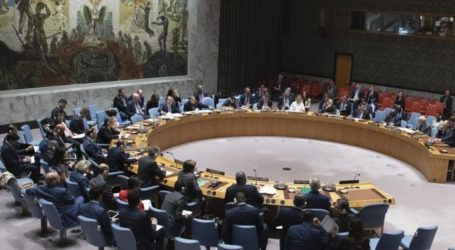REPORT: EGYPT CLOSED THE RAFAH CROSSING FOR 96 DAYS IN SIX MONTHS
 Gaza, 20 Rabi’ul Akhir 1435/20 February 2014 (MINA) – Palestinian official statistics showed that in the past year 2013, the Rafah border crossing was closed for 101 days, while the number of its closure days reached 96 since June 30.
Gaza, 20 Rabi’ul Akhir 1435/20 February 2014 (MINA) – Palestinian official statistics showed that in the past year 2013, the Rafah border crossing was closed for 101 days, while the number of its closure days reached 96 since June 30. The Background: Blockade of the Gaza Strip by Israel and Egypt
The Background: Blockade of the Gaza Strip by Israel and Egypt
The blockade of the Gaza Strip refers to a land, air, and sea blockade on the Gaza Strip by Egypt and Israel since 2007 up to now. Israel claimed that it relatively eased the blockade for non-military goods in June 2010. Egypt reopened the Rafah border crossing in 2011 for persons and goods.
In 2006 Hamas won the Palestinian legislative election, triggering the 2006-2007 economic sanctions against the Palestinian National Authority by Israel and the Quartet on the Middle East. In March 2007, Hamas and Fatah formed a Palestinian authority national unity government headed by Ismail Haniya.
Shortly after, in June, Hamas took control of the Gaza Strip in the course of the Battle of Gaza, seizing government institutions and replacing Fatah and other government officials with its own. Following the takeover, Egypt and Israel largely sealed their border crossings with Gaza, on the grounds that Fatah had fled and was no longer providing security on the Palestinian side.
Israel maintains that the blockade is necessary to limit Palestinian rocket attacks from the Gaza Strip on its cities and to prevent Hamas from obtaining other weapons. Prior to its 2011 opening of the Rafah crossing, Egypt maintained that it could not fully open its side of the border since completely opening the border would represent Egyptian recognition of the Hamas control of Gaza, undermine the legitimacy of the Palestinian National Authority and consecrate the split between Gaza and the West Bank.
Facing mounting international calls to ease or lift their blockade in response to the Gaza flotilla raid, Egypt and Israel lessened the restrictions starting in June 2010. Israel announced that it will allow all strictly civilian goods into Gaza while preventing certain weapons and what it designates as “dual-use” items from entering Gaza.
Egypt partly opened the Rafah border crossing from Egypt to Gaza, primarily for people, but not for supplies, to go through. The Israeli NGO Gisha Legal Center for Freedom of Movement asserted in a July 2010 report that Israel continues to prevent normal functioning of the Gazan economy. Israel continues to severely restrict and/or prevent people from entering or exiting Gaza according to Gisha.
The United Nations Office for the Coordination of Humanitarian Affairs (UNOCHA) conducted an assessment of the humanitarian impact of the easing of the blockage in January and February 2011 and concluded that they did not result in a significant improvement in people’s livelihoods.
Egypt for some time opened the Rafah border crossing permanently as of 28 May 2011. A limited number of women of all ages and men aged below 18 and above 40 were able to enter Egypt without a visa, although there are still severe restrictions on the movement of personnel and goods to and from Gaza. In practice, however, a great deal of goods are smuggled in through tunnels between Egypt and Gaza, and the quantity of goods smuggled in has increased greatly since the Egyptian revolution in early 2011.
The blockade was criticized by UN Secretary-General Ban Ki-moon, the United Nations Human Rights Council and other human rights organizations. It has been officially supported by United States administrations, although in June 2010 Secretary of State Hillary Clinton said the situation in Gaza is “unsustainable and unacceptable.”
Opinion on the legality of the blockade is mixed. In September 2011, a UN investigative committee concluded in the Palmer Report that the naval blockade is legal and had to be judged isolated from the restrictions on goods reaching Gaza via the land crossings.
Concerning the restrictions on goods reaching Gaza via the land crossings the Palmer report stated that they were the main reason for an unsustainable and unacceptable humanitarian situation in Gaza. UN envoy Desmond Tutu, United Nations Human Rights Council head Navi Pillay, the International Committee of the Red Cross and, according to Richard Falk, most experts on international law consider the blockade illegal. (T/P08/E01)






